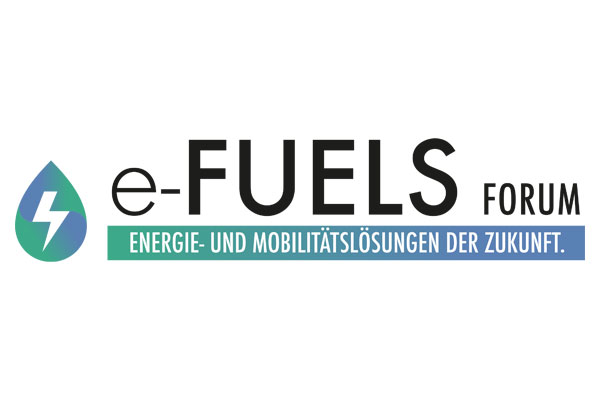Monday, September 25, 2023 – In accordance with EU regulations, only tailpipe emissions have been used to determine the CO2 emissions of new vehicle fleets of manufacturers of passenger cars and light commercial vehicles. A group of plaintiffs from the medium-sized energy trade filed a lawsuit in the European Court of Justice in July 2023 against the tightening of CO2 emission standards, arguing that this regulation slows down the development, production and sale of CO2-neutral synthetic fuels for motor vehicles to the detriment of climate protection.
The EU regulation adopted in April 2023 provides for a significant tightening of CO2 fleet limits for new passenger cars and light commercial vehicles in the EU from 2030. From 2035, only zero-emission vehicles may be registered under the ordinance. “We expressly support the EU climate targets and would like to contribute to achieving them with CO2-neutral green power-based or biogenic fuels,” emphasizes medium-sized energy trader Dr. Lorenz Kiene. For example, CO2 from the atmosphere is used in their production. When the fuels are burned in driving operations, only the CO2 bound during production is released again. It is thus a closed cycle – no additional or fossil CO2 is emitted.
“Tailpipe approach” hinders ramp-up of climate-friendly fuels
However, the so-called “tailpipe approach” with its underlying regulation of CO2 fleet limits is slowing down the ramp-up of these fuels. The positive contribution of CO2-neutral fuels to climate protection is left out of a measurement at the tailpipe.
Climate protection requires a holistic view of CO2 emissions – the “lifecycle approach” should also be applied to CO2 fleet limits
Successful climate protection requires a holistic approach to recording CO2 emissions from mobility. This should take into account all emissions generated during the production (in the case of battery electric vehicles (BEV), for example, including the battery), operation (in the case of BEVs, including the generation of the charging current, and in the case of internal combustion vehicles, including the provision and combustion of the fuels) and disposal of passenger cars and light commercial vehicles. The European Union has also repeatedly emphasized the importance of such a “lifecycle approach” for measuring emissions. The fact that the regulations on CO2 fleet limits deviate from this without any objective justification is, in the view of the plaintiffs, incomprehensible and, moreover, detrimental to climate protection. After all, says Dr. Kiene, “CO2-neutral fuels offer the only way to include internal combustion engine vehicles, which will continue to dominate the vehicle population in the long term, in climate protection efforts.”
The plaintiffs also see their fundamental rights violated
A group of four plaintiffs from the medium-sized energy trade – Dr. Lorenz Kiene, CLASSIC Tankstellen GmbH & Co. KG, eFuel GmbH and eFuel Projektentwicklung GmbH, all based in Hoya in Lower Saxony – has filed an action against the decision before the European Court. The plaintiffs, who are commercially active in the development, production and distribution of CO2-neutral fuels for passenger cars and light commercial vehicles, consider their fundamental right to entrepreneurial freedom to have been violated by the “tailpipe approach”. “The ‘tailpipe approach’ unduly restricts the development of an innovative renewable fuels industry, which could make an indispensable contribution to achieving climate targets,” explains Dr. Kiene, adding, “Instead, in the interests of climate protection, we advocate an approach that considers emissions over the entire life cycle of vehicles.”
European Union as Defendant
The defendant in the proceedings is the European Union, represented by the European Parliament and the Council of the European Union. The plaintiffs are represented by the law firm Osborne Clarke. The industry association UNITI e.V. supports the lawsuit.
About the plaintiffs
Dr. Lorenz Kiene is a pioneer in the distribution and production of CO2-neutral fuels in the European Union and, among other things, shareholder and managing director of Christian Lühmann GmbH, a medium-sized energy trading company. Dr. Kiene is a member of the board of UNITI e.V., where he is responsible for the service station sector.
CLASSIC Tankstellen GmbH & Co KG is a subsidiary of Christian Lühmann GmbH, which is transforming its business model towards the distribution of CO2-neutral fuels for sustainable mobility.
eFuel GmbH is a joint venture of ten medium-sized service station operators and energy traders and aims to make a decisive contribution to the future-oriented and CO2-neutral realignment of business models.
eFuel Projektentwicklung GmbH is to drive and promote projects to ramp up the production of CO2-neutral fuels.
Press contact:
CONSILIUM Rechtskommunikation GmbH RA
Martin Wohlrabe






